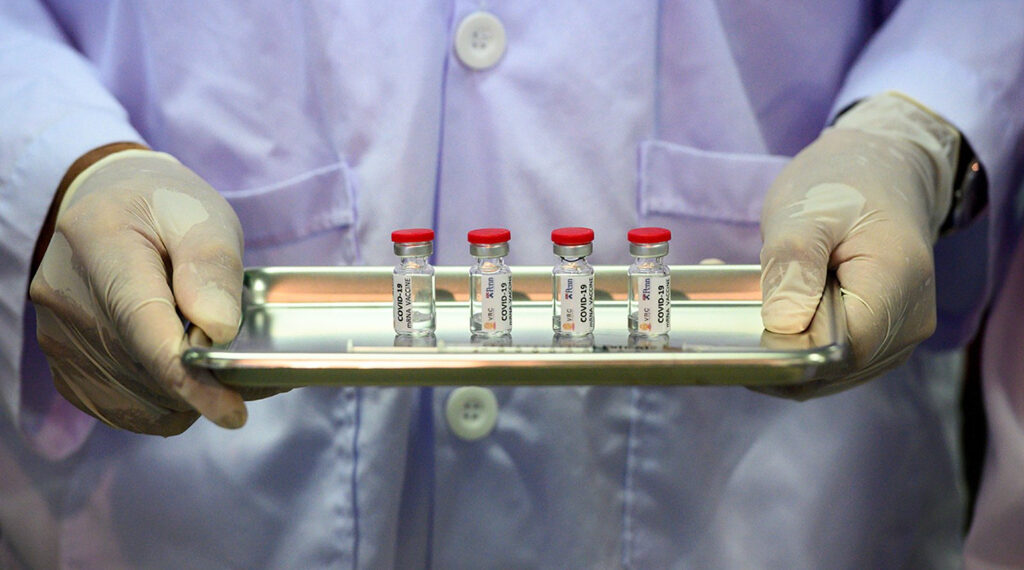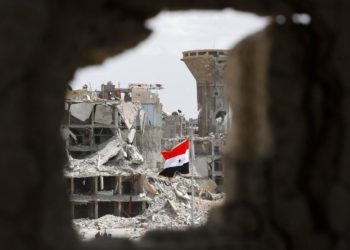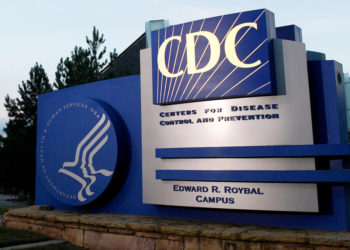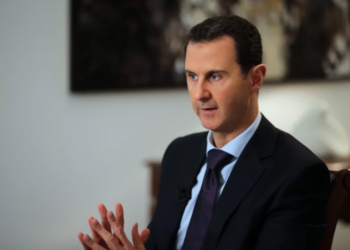Syria will start giving coronavirus vaccines to its vital healthcare workers across the war-ravaged country from next week, a government minister said Thursday.
Health Minister Hasan al-Ghabbash, who announced the Covid-19 vaccination drive at a news conference carried by state news agency SANA, did not specify the brand, source or quantity of the jabs.
“The vaccination of medical cadres will start next week… to prevent them from getting infected,” SANA said, citing the minister.
The pro-government Al Watan newspaper said Syria had received 5,000 doses — enough to cover 2,500 healthcare workers — and that they were manufactured in China.
The Syrian government is also set to receive jabs as part of the World Health Organization‘s Covax initiative after it signed on last month.
The WHO, together with the UN children’s agency UNICEF and the Gavi vaccine alliance, said they would help Syria to acquire jabs to initially cover at least three percent of the population and aim for 20 percent by the end of the year.
Syria has also authorized the use of Russia’s Sputnik V coronavirus vaccine, its embassy in Moscow said Monday.
The government has recorded 15,343 Covid-19 cases in areas under its control, including 1,008 deaths.
Healthcare workers made up around 3.6 percent of total cases, Ghabbash said.
In the Kurdish-held northeast, authorities have announced a total of 8,595 cases and 313 deaths.
And in rebel-held northwest Syria, opposition officials have reported 21,150 cases, including 408 deaths.
But doctors and rights organizations believe coronavirus numbers in Syria are likely to be much higher.
The WHO said on Wednesday that the first shipment of AstraZeneca‘s coronavirus vaccine would arrive in Syria’s northwest by the end of next month.
An official from the Kurdish administration in the northeast said it was “in talks with the WHO for the procurement of the coronavirus vaccine” but was “yet to clinch a deal”.
Human Rights Watch this month urged support for aid groups to ensure “equitable” distribution of coronavirus vaccines across Syria, warning against any discriminatory approach by Damascus.
The conflict in Syria since 2011 has killed more than 387,000 people and ravaged a healthcare sector struggling to cope with a mass outflux of professionals.
Around 70 percent of the country’s pre-war medical staff have left since the start of the conflict.























